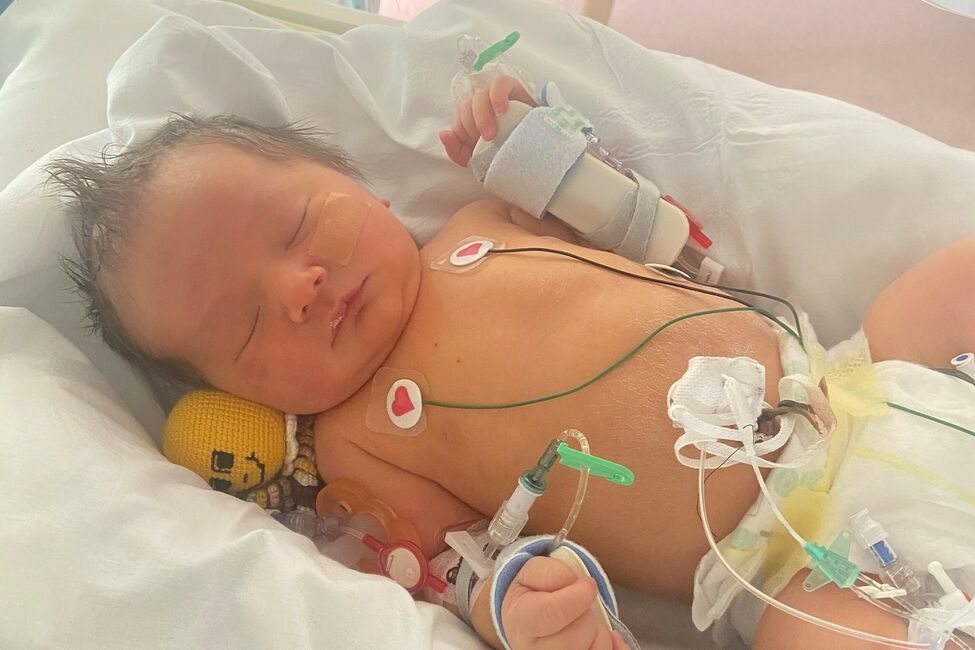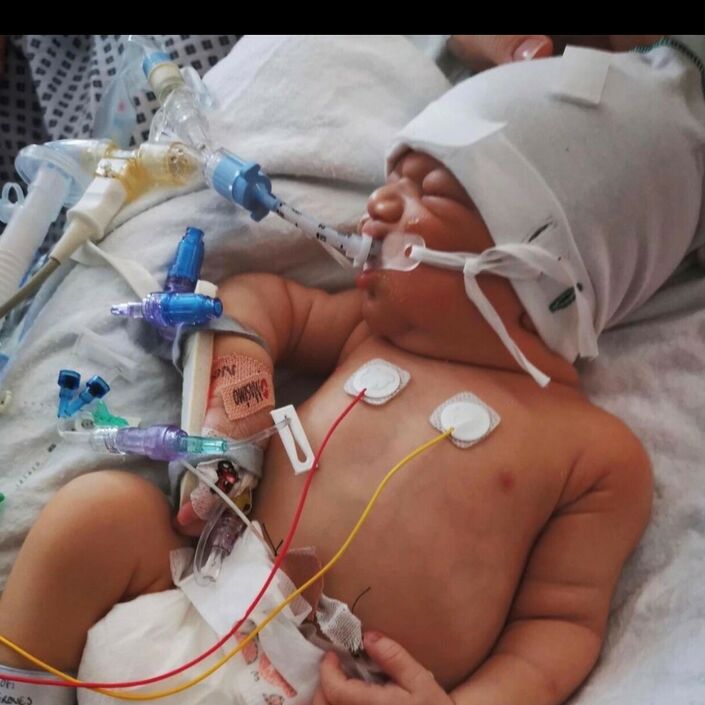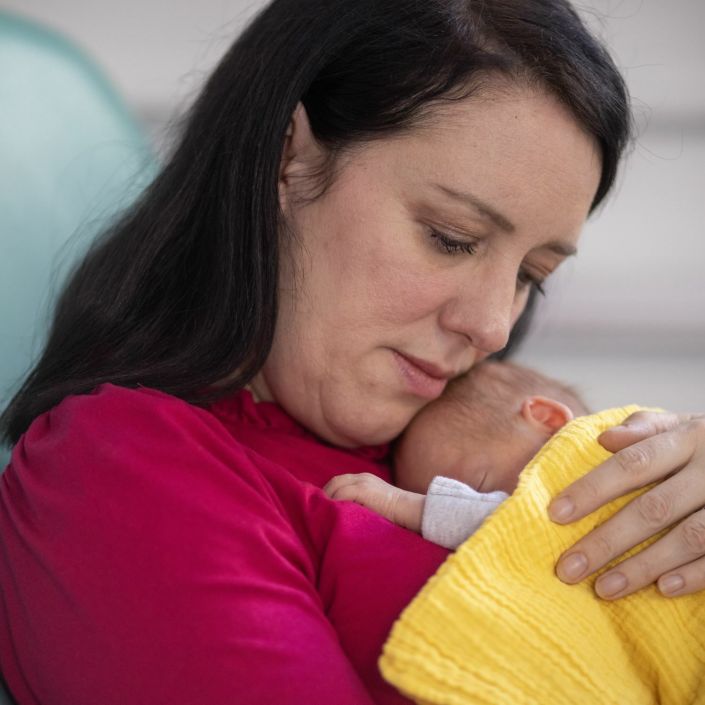What are the tests for meningitis in newborns?
In the hospital, doctors and other healthcare professionals will examine your baby and ask you about their symptoms. If they suspect meningitis, or wish to rule it out, they may carry out some tests on your baby. These may include:
- Blood tests to check your baby’s health and for signs of infection
- A lumbar puncture (LP), where a doctor or nurse inserts a small needle between the bones of the lower back and into the spinal cord to remove a sample of fluid. This is the only test that rules out or confirms meningitis. It can help doctors identify what is causing it and know how to treat your baby.
With babies, it can be harder to tell if they have an infection because they are not able to tell us their symptoms. This means that doctors are more likely to need to do tests to check for illness with babies than they do with older children and adults.
If the neonatal team suspects an infection, the doctors may start giving your baby antibiotic treatment before meningitis is confirmed by the lumbar puncture.
Your healthcare team will be able to talk you through these procedures. See our pages on how parents can be involved in their baby’s care during diagnosis and treatment.
If your baby has bacterial meningitis, they will need to be treated in hospital. If they are seriously unwell, they may need to be cared for in a neonatal high dependency unit (HDU) or a neonatal intensive care unit (NICU).
Your baby will need immediate treatment with antibiotics, which are medicines that kill bacteria. The doctors will use the results of your baby’s blood and lumbar puncture tests to help them decide which is the best antibiotic to use, and how long to give it for. The antibiotics will be given through a small tube directly into one of your baby’s veins, and treatment can be expected to last between 7 and 14 days.
What are the after-effects of meningitis on newborn babies?
With quick treatment, many babies make a full recovery after having bacterial meningitis. While this is not common, some babies get complications because of the way the infection can damage the brain. For example, if there is a build-up of fluid in the brain, the fluid will need to be removed.
If your baby has any complications, the doctors and nurses will explain what is happening and the treatment your baby will need.
Some babies are left with long-term problems after having meningitis. This is more common in babies born prematurely. Serious long-term problems may include:
- Epilepsy – having seizures (or fits)
- Learning difficulties
- Cerebral palsy – a physical condition that affects movement, posture and coordination
- Problems with hearing and/or eyesight
- Speech and language problems
- Problems with behaviour.
These problems may not be obvious immediately, so it is important that your baby has regular reviews of their development, particularly in the first two years, to see how they are progressing. Babies that had bacterial meningitis will be offered additional hearing tests. For more information on supporting your baby's development see our early development page.
Sadly, although meningitis is rare, some babies who get it may die.
Is there a vaccine?
There are several vaccines that offer protection against meningitis. These target the different types of bacteria that cause the infection and are given as part of the routine NHS vaccination schedule. However the first vaccination takes place when a baby is 8 weeks old and the vaccines are not offered to newborns. The vaccines don’t prevent all types of meningitis.
Having a baby who is unwell with meningitis in intensive care or special care can be a challenging and stressful experience. We have some information about how you might be feeling and the different types of support available.
If you are not sure about any part of your baby's illness, treatment or care, the staff looking after your baby will help in any way they can. It is ok to ask again if you need information repeated or made clearer. The team will understand and want to support you.
We have included some links below to charities and organisations that provide information and support around meningitis. Our website also has other links to charities and organisations to a range of medical conditions and disabilities.
If you need someone to talk to, you can also contact us via email on [email protected] or arrange a video call with one of our volunteers.
General meningitis information
Meningitis Research Foundation – for information and support with meningitis at any age, including babies
Meningitis Now – also for information and support with meningitis at any age, including babies
Meningitis - NHS – general information about meningitis infections, symptoms, treatment and complications
Information on the causes of meningitis
Group B Strep – works to stop group B strep (GBS) infection in babies. Provides support and information to families about GBS
Meningococcal meningitis - Meningitis Research Foundation
The UK Sepsis Trust
Information on tests for diagnosis
Lumbar puncture | NHS
Tests and care your baby might be given | Bliss
Information on the after-effects of meningitis
Epilepsy - NHS
Cerebral palsy - NHS
Cerebral Palsy Guide - Meningitis in Infants | Causes, Symptoms & Treatment
Long-term after-effects of meningitis - Meningitis Now
Sepsis Recovery & Post Sepsis Syndrome





